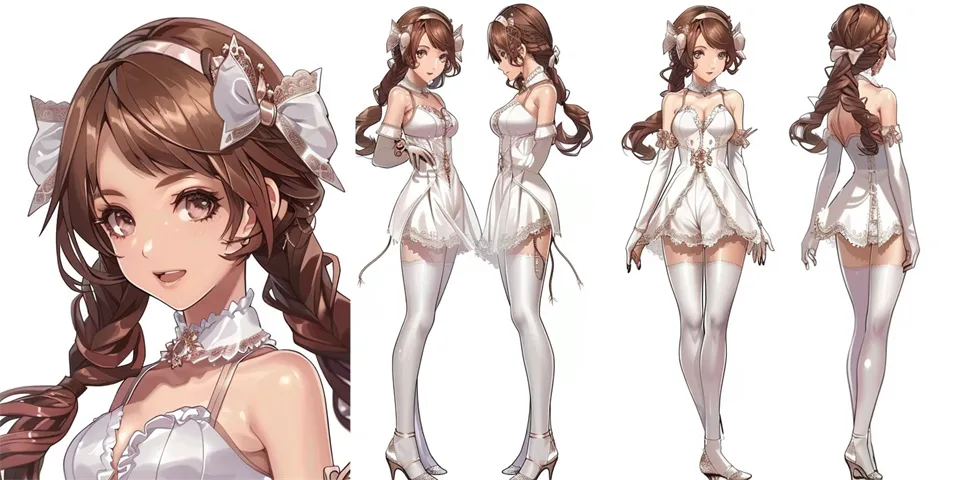How to explain fanfiction to parents
Fanfiction, a world that's gaining popularity among fans of various cultural products. If your parents have been confused by your newfound interests and constantly ask, "What on earth is fanfiction?" Then, we have created this comprehensive guide to help you explain the fascinating world of fanfiction to your parents.
1. Definition of Fanfiction
The first step is to explain what fanfiction is. Fanfiction is when fans create their own stories based on original works of fiction, such as movies, TV shows, books, or video games. These stories can continue, expand, or even change the original plot.

Tell your parents that fanfiction is a component of transformative works, meaning that they transform the original content into something unique through the lens and creativity of fans. This transformation can take the form of a spin-off, sequel, prequel, or an alternative universe variation.
2. the legality of fanfiction
Fanfiction exists in a legal gray area. Most authors don't sue fanfic writers for copyright infringement because fanfics are created out of love and admiration for the original work, rather than for any commercial profit. Also, creators of fanfic generally acknowledge the copyright holders and make it clear that their work is unofficial.
It's important to reassure your parents that most fandom communities are cautious about plagiarism and respect copyright laws, though situations can vary.
3. Purpose of Writing Fanfiction.
Explain to your parents the numerous reasons why one might choose to write fanfiction. For many, it offers an outlet for creativity and a chance to practice writing skills. It can also be a way for fans to explore themes or scenarios that were not fully developed in the original work.
Moreover, fanfiction allows writers to act out their personal interpretations of characters or fill gaps where canon material is lacking. It's more of a hobby that helps to build writing skills while extending love for a particular work of fiction.
4. Fanfiction Genres and Tropes
Just like any other literary works, fanfiction comes in a variety of genres, ranging from romance to adventure, and from drama to horror. Tropes, which are recurring themes or elements across numerous stories, also play a significant part in fanfiction.
A few popular tropes include “coffee shop AU�(alternative universe where characters meet in a coffee shop), "slow burn" (a relationship that develops gradually over time), and "hurt/comfort" (one character comforting or taking care of another who's been through a traumatic experience).
5. Platforms for Fanfiction
Fanfiction is primarily shared online via websites like Fanfiction.net and Archive of Our Own (AO3). These platforms provide writers with a space to publish their work and interact with other fans.
In detailing these websites, highlight that they work similarly to any other website where users can post and share content. You may need to explain the rating system as well, which ranges from “General Audiences�to “Explicit�
Common Questions
Now let's discuss a few common questions your parents might have:
Q: Isn't fanfiction just stealing someone else's work?
A: No, fanfiction is not about stealing. It's about paying homage to a creator's world and characters while adding your own creative twist. Fanfiction acknowledges the original creator and doesn't claim to substitute the original work.
Q: Are all fanfictions inappropriate or explicit?
A: Just like any other form of media, fanfiction can cover a wide range of content. Some fanfictions are explicit, but many are appropriate for all audiences. Rating systems on fanfiction websites help identify the content in this regard.
Q: Are all fanfiction writers teenagers?
A: No, fanfiction is written and enjoyed by people of all ages.
Conclusion
Explaining fanfiction to parents is about giving them a comprehensive understanding of how fan-created narratives amplify and honour original works. Fanfiction doesn't replace the original, but instead provides an additional space for fan engagement where readers and writers collectively shape new narratives.
Every fanfic serves as an ode to the original, carrying familiar ideas into unpredictable scenarios. By understanding fanfiction, parents can better appreciate this extraordinary aspect of fan culture their children are part of.
References
1. Hellekson, K., & Busse, K. (2014). The Fan Fiction Studies Reader. University of Iowa Press.
2. Tushnet, R. (2007). Copyright law, fan practices, and the rights of the author. Transformative Works and Cultures, 1.
